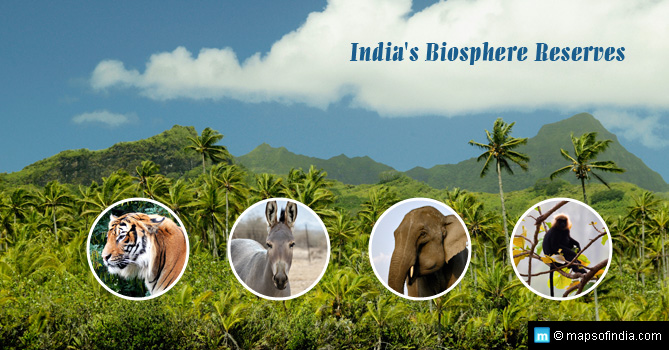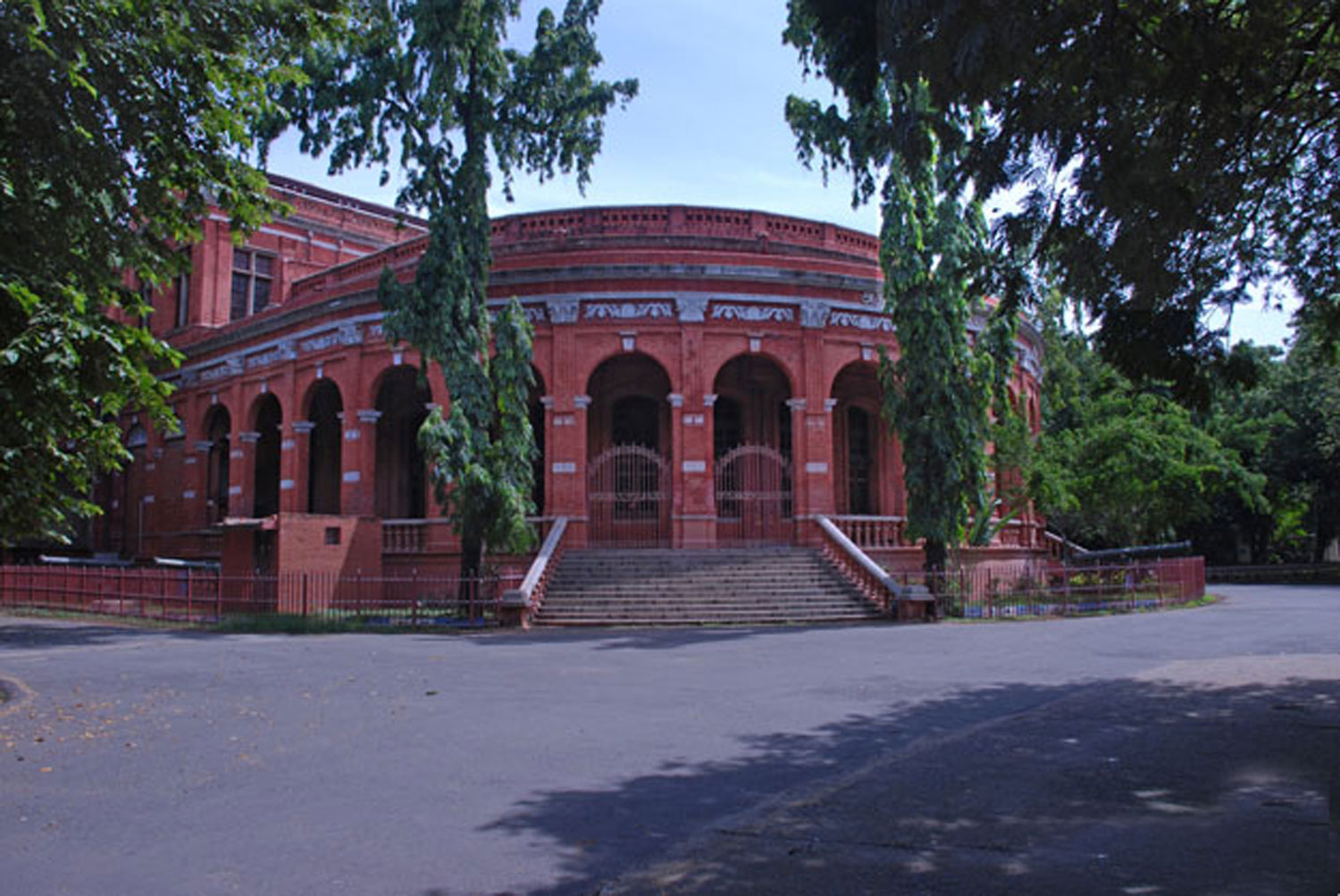What is a Biosphere Reserve?
A Biosphere Reserve is a special ecosystem or a specialized environment with a flora and fauna that require protection and nurturing. These reserves are managed and studied for the conservation of various life forms found here. They are subjects of scientific and natural interest.
According to UNESCO, “Biosphere reserves are areas of terrestrial and coastal ecosystems promoting solutions to reconcile the conservation of biodiversity with its sustainable use. They are internationally recognized, nominated by national governments and remain under sovereign jurisdiction of the states where they are located”.
In 1971, UNESCO launched a global programme to formalize the scientific interaction between man and his natural environment. This programme is called the Man and the Biosphere Programme (MAB). Some 120 countries have joined in by establishing 669 biosphere reserves, including 16 transboundary reserves connected by the World Network of Biosphere Reserves. The MAB is a worthy initiative aimed at conserving the ecology and environment which is essential to the very survival of many rare and dying species of flora and fauna. India, with its rich treasure trove of biodiversity, is geographically ideal for establishing, cultivating and maintaining a variety of biosphere reserves.
Biosphere Reserves in India
The Ministry of Environment, Forest and Climate Change, Government of India defines Biosphere Reserves thus – “Biosphere Reserves (BRs) are representative parts of natural and cultural landscapes extending over large area of terrestrial or coastal/marine ecosystems or a combination thereof and representative examples of bio-geographic zones/province”. The Government of India has established about 18 different Biosphere Reserves in the country. Of these, 10 are part of the World Network of Biosphere Reserves, set up under the auspices of the UNESCO Man and Biosphere (MAB) Programme. Not only are animals protected in the Biosphere Reserves of our country but the natural lifestyle of the indigenous people is also promoted. The communities in these regions are encouraged to retain their agrarian lifestyle and develop harmony with the plants and animals. The Biosphere Reserves of India correspond roughly to the IUCN Category V Protected Areas list and are often designed to include one or more national parks and national sanctuaries. The buffer zones of these Biosphere Reserves are open to economic activities as well.
Here’s a list of Biosphere Reserves in India:
Nilgiri Biosphere Reserve (connected to MAB)
This is the first Biosphere Reserve established in the country.
| Year of Establishment | States | Coverage | Type | Area (sq kilometres) | Key Fauna |
| 1-Aug-1986 | Tamil Nadu, Karnataka, Kerala | Parts of Wayanad, Nagarhole, Bandipur and Mudumalai, Nilambur, Silent Valley and Siruvani hills | Western Ghats | 5,520 | Nilgiri Tahr, Lion-tailed macaque |
Gulf of Mannar (connected to MAB)
| Year of Establishment | States | Coverage | Type | Area (sq kilometres) | Key Fauna |
| 18-Feb-1989 | Tamil Nadu | Rameswaram in the north to Kanyakumari in the south | Coastal | 10,500 | Dugong or Sea Cow |
Sunderbans (connected to MAB)
| Year of Establishment | States | Coverage | Type | Area (sq kilometres) | Key Fauna |
| 29-Mar-1989 | West Bengal | Parts of delta of Ganges & Brahamaputra river | Gangetic Delta | 9,630 | Royal Bengal Tiger |
Nanda Devi National Park & Biosphere Reserve (connected to MAB)
| Year of Establishment | States | Coverage | Type | Area (sq kilometres) | Key Fauna |
| 18-Jan-1988 | Uttarakhand | Parts of Chamoli, Pithoragarh and Almora districts in Uttarakhand | Western Himalayas | 5,860 | Himalayan Snow Leopard |
Nokrek (connected to MAB)
| Year of Establishment | States | Coverage | Type | Area (sq kilometres) | Key Fauna |
| 1-Sep-1988 | Meghalaya | Parts of East, West and South Garo Hill districts | Eastern Himalayas | 820 | Red Panda |
Pachmarhi Biosphere Reserve (connected to MAB)
| Year of Establishment | States | Coverage | Type | Area (sq kilometres) | Key Fauna |
| 03-Mar-1999 | Madhya Pradesh | Parts of Betul, Hoshangabad and Chhindwara | Semi-Arid | 4,981 | Giant Squirrel, Flying Squirrel |
Similipal (connected to MAB)
| Year of Establishment | States | Coverage | Type | Area (sq kilometres) | Key Fauna |
| 21-Jun-1994 | Odisha | Parts of Mayurbhanj district | Deccan Peninsula | 4,374 | Gaur, Royal Bengal Tiger, Wild Elephant |
Achanakmar- Amarkantak (connected to MAB)
| Year of Establishment | States | Coverage | Type | Area (sq kilometres) | Key Fauna |
| 30-Mar-2005 | Madhya Pradesh and Chhattisgarh | Parts of Anuppur and Dindori district and Bilaspur district | Maikala Hills | 3,835 | Leopards, gaur, chital |
Great Nicobar Island Biosphere Reserve (connected to MAB)
| Year of Establishment | States | Coverage | Type | Area (sq kilometres) | Key Fauna |
| 06-Jan-1989 | Andaman and Nicobar Islands | Southernmost islands of Andaman & Nicobar | Island | 885 | Saltwater Crocodile |
Agasthyamalai Biosphere Reserve (connected to MAB)
| Year of Establishment | States | Coverage | Type | Area (sq kilometres) | Key Fauna |
| 12-Nov-2001 | Tamil Nadu, Kerala | Parts of Thirunelveli and Kanyakumari districts and Thiruvanthapuram, Kollam, and Pathanmthitta districts | Western Ghats | 3,500 | Nilgiri Tahr, Elephants |
Manas
| Year of Establishment | States | Coverage | Type | Area (sq kilometres) | Key Fauna |
| 14-Mar-1989 | Assam | Parts of Kokrajhar, Bongaigaon, Barpeta,Nalbari, Kamprup and Darang districts | East Himalayas | 2,837 | Golden Langur, Red Panda |
Dibru-Saikhowa
| Year of Establishment | States | Coverage | Type | Area (sq kilometres) | Key Fauna |
| 28-Jul-1997 | Assam | Parts of Dibrugarh and Tinsukia districts | East Himalayas | 765 | Golden Langur |
Dehang-Dibang
| Year of Establishment | States | Coverage | Type | Area (sq kilometres) | Key Fauna |
| 02-Sep-1998 | Arunachal Pradesh | Parts of Upper Siang, West Siang and Dibang Valleys | East Himalayas | 5,111 | N/A |
Khangchendzonga
| Year of Establishment | States | Coverage | Type | Area (sq kilometres) | Key Fauna |
| 7-Feb-2000 | Sikkim | Parts of North and West Sikkim districts | East Himalayas | 2,931 | Snow Leopard, Red Panda |
Great Rann of Kutch
| Year of Establishment | States | Coverage | Type | Area (sq kilometres) | Key Fauna |
| 29-Jan-2008 | Gujarat | Parts of Kutch, Rajkot, Surendranagar and Patan districts | Desert | 12,454 | Indian Wild Ass |
Cold Desert
| Year of Establishment | States | Coverage | Type | Area (sq kilometres) | Key Fauna |
| 28-Aug-2009 | Himachal Pradesh | Pin Valley National Park and its surroundings; Chandratal & Sarchu and Kibber Wildlife Sanctuary | Western Himalayas | 7,770 | Snow Leopard |
Seshachalam Hills
| Year of Establishment | States | Coverage | Type | Area (sq kilometres) | Key Fauna |
| 20-Sep-2010 | Andhra Pradesh | Seshachalam hill ranges in Eastern Ghats encompassing part of Chittoor and Kadapa districts | Eastern Ghats | 4,755 | N/A |
Panna
| Year of Establishment | States | Coverage | Type | Area (sq kilometres) | Key Fauna |
| 25-Aug-2011 | Madhya Pradesh | Parts of Panna and Chhattarpur districts | River Valley | 2,998 | Tiger, Chital, Chinkara, Sambhar and Sloth Bear |
Read More:
Top 10 National Parks in India
Map of National Parks in India






